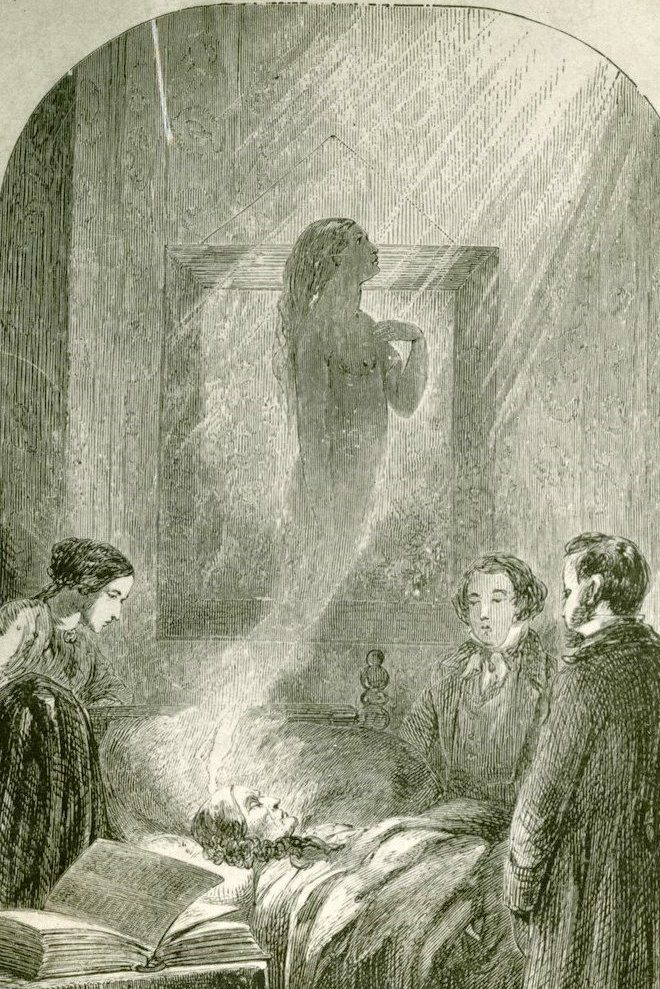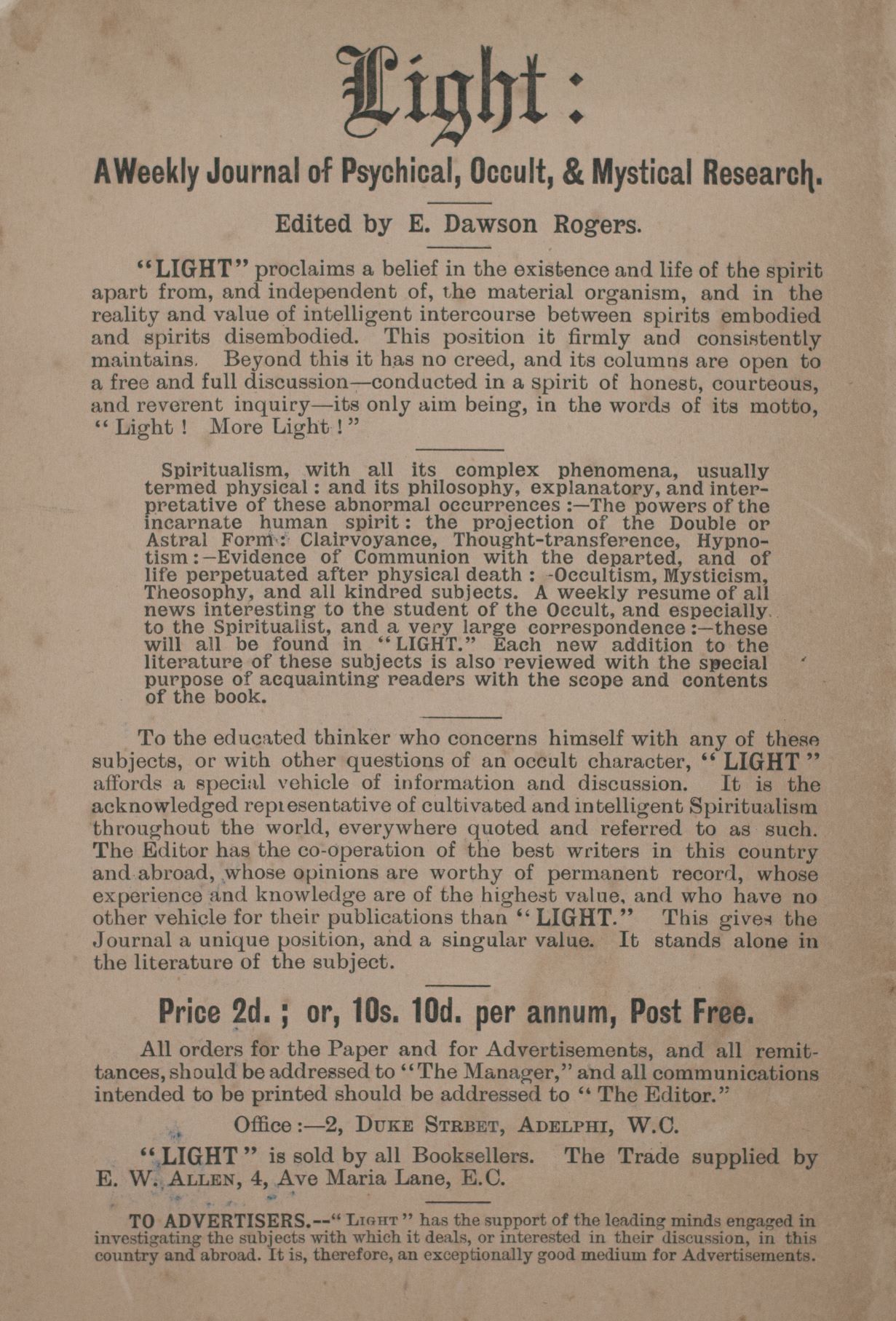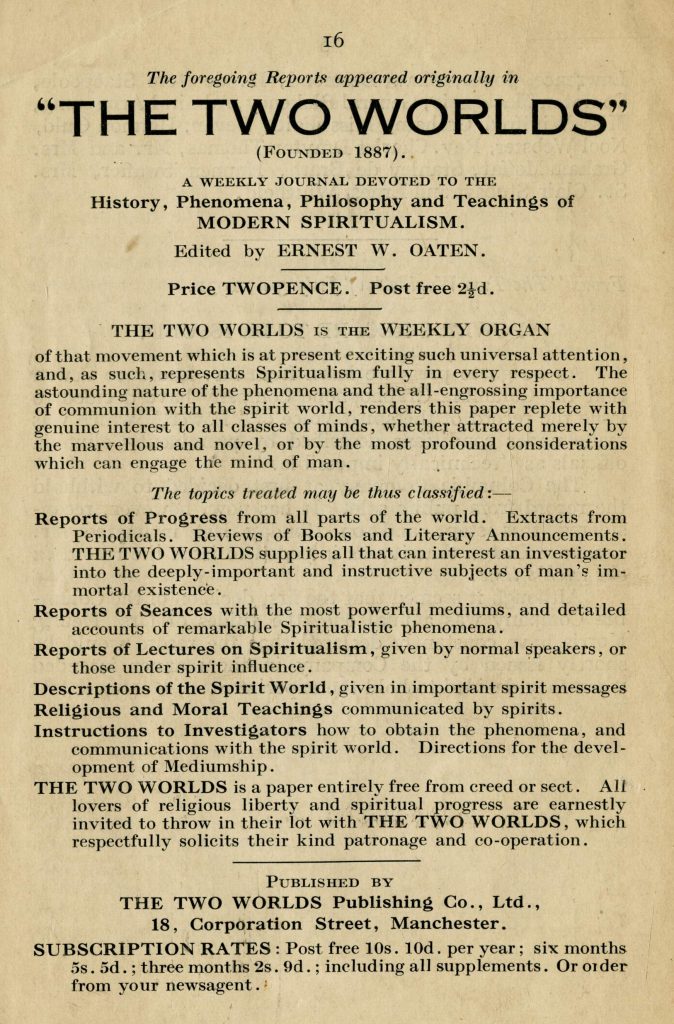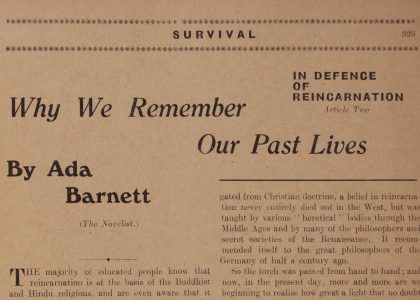Spiritualism
“It has been the general opinion of all nations […] that man does not die entirely, but that his better part subsists after the dissolution of the body; and this original notion of the soul’s immortality, has induced the most learned, and most ancient nations to indulge the belief of the possibility of the visible interference of spirits upon certain momentous and awful occasions.”
Opening to John Tregortha’s News from the Invisible World (1813)
Spiritualism is a social and religious movement that became especially popular during the 19th and 20th centuries. Its central belief is that a person’s consciousness, or spirit, persists after death and can be contacted by the living, such as through mediumship. Spiritualism does not preclude its believers from subscribing to other religions; in fact, many of the most prominent spiritualists were Christians.
Spiritualist publications such as “Light” and “The Two Worlds” helped to spread and reinforce Spiritualist beliefs during the late 19th and early 20th centuries. These journals described Spiritualism as a free and liberating belief and intellectual movement recognizing the existence of a spirit and spirit world separate from the physical being, Accounts of séances, research reports, and Spiritualist lectures and teachings, were often first published in journals such as these, and reprinted for further exposure. Both of these advertisements were located in reprinted works.
Appeals of Spiritualism
Spiritualism has appealed to people across centuries for various reasons. Many were attracted to the beliefs of Spiritualism, utilizing them as or incorporating them into religion. Some saw Spiritualist beliefs as an argument for progressive reforms such as abolition and women’s equality. Others may have simply found the idea of an afterlife and communing with the dead to be good entertainment. Western cultures have historically seen a rise in Spiritualism during periods of uncertainty, tension, and change.
From the mid 19th century into the early 20th century, Western cultures experienced rapid industrialization. New technologies and the emergence of the economic system of capitalism would have significant impacts on society, and the people living through this era were well aware. The convergence of hope for social progress and uncertainty of the future created the perfect environment for the rise of spiritualism.
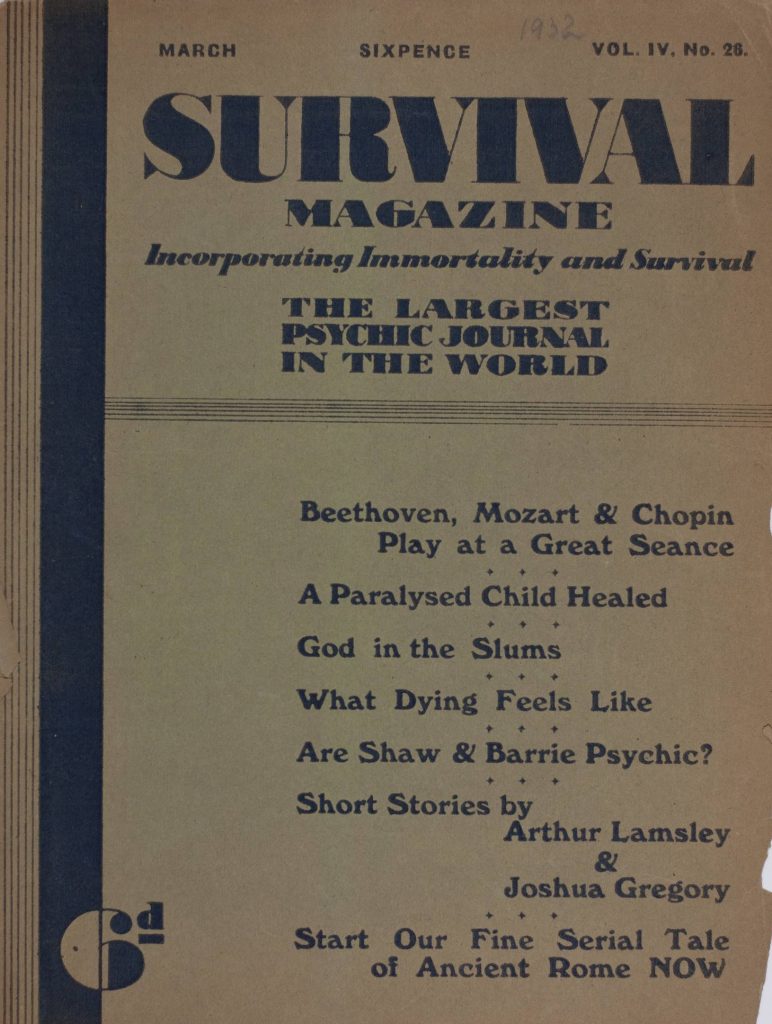
The development of parapsychology reinforced interests in the movement throughout the 20th century. This caused a bit of a conflict among Spiritualists, with some denouncing skeptics and the theories of parapsychologists. Other Spiritualists embraced these experiments, hopeful to find proof of life after death, and to separate real mediums from fraudsters.
Interests in Spiritualism during the 20th century was also associated with World War and Cold War era tensions. Some found reassurance in the belief in life after death, or escapism in stories of ghosts and speaking to the dead. Progressive ideas remained an important aspect of Spiritualism during this period, as many people developed a strong idealistic desire for an end to all wars and a more united world. As Nandor Fodor wrote, “[Promoting Spiritualism] is not done for personal gain. It is done for a movement which, [believers] fervently hope, will conquer the world and make it a better place to live in.”
“Every day one reads in the national press accounts of more and more weapons of destruction being produced, and the state of the world cannot be said to be peaceful. People on the whole are feeling insecure, and are finding that life on Earth is anything but easy. They need assurance that even if this life suddenly ends they will have a happier existence in some other plane. They will seek messages from mediums…”
Practical Mediumship by Murial A. Hillier, 1963, Modern Press: London
Into the 21st century, Spiritualism has exited the mainstream, but it has not disappeared. While a smaller percentage of people would consider themselves Spiritualists today, there are many who hold spiritual beliefs which share features with spiritualism – and this number may be increasing. If the historical trend continues, we may expect to see a resurgence of Spiritualism in response to the ongoing tensions and uncertainty of our current era.

